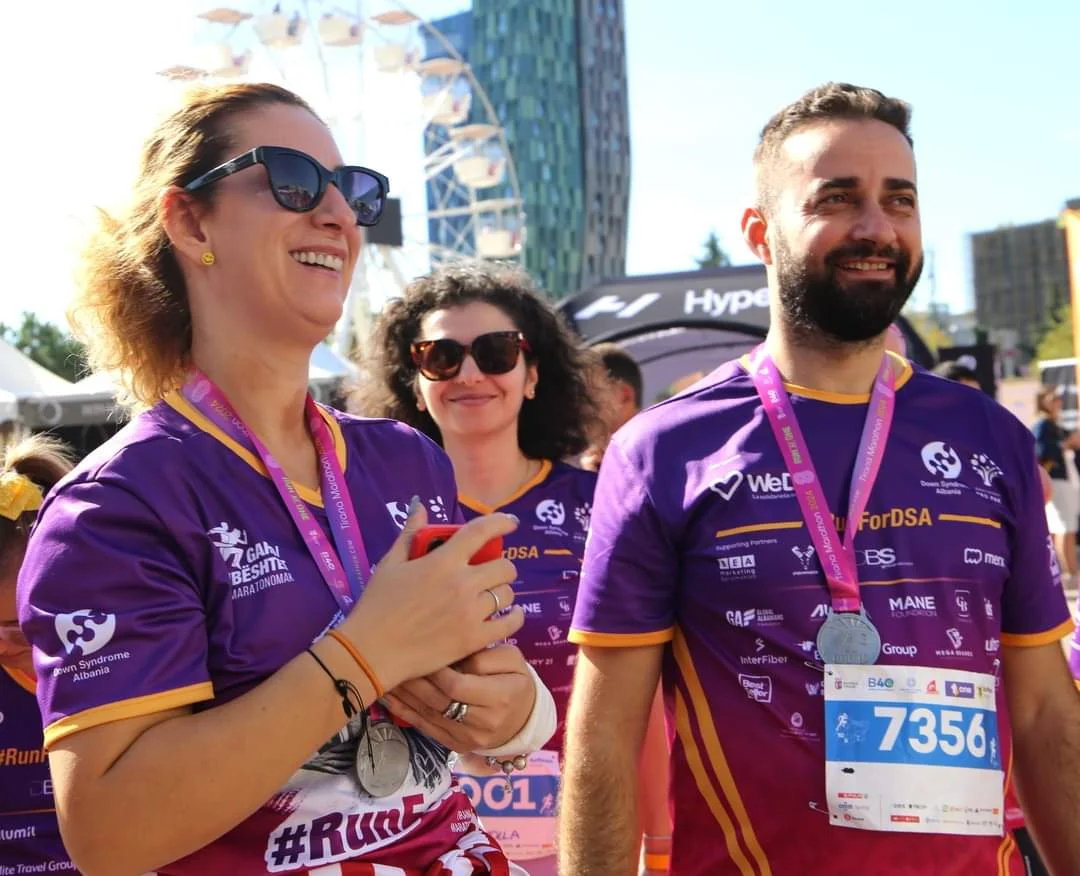by Eni Muça
There aren’t many people who remain the same in the way they give — calmly, consistently, and without noise. Erandi Sula is one of them. For years, as a donor of Down Syndrome Albania, he has not seen solidarity as a public act, but as something that happens naturally — when you don’t pretend not to see. In this conversation, he talks about the reasons that keep him connected to the cause, how he defines responsibility in business, and his belief that true impact begins exactly where self-interest ends.
Erandi, you are one of the earliest and most consistent supporters of the “Down Syndrome Albania” initiative. What personally drives you to engage in such causes, and what does solidarity mean to you in practice?
For me, solidarity is neither a grand word nor an occasional gesture. It’s something deeply human that happens when you don’t close your eyes in front of a need. It’s about empathy, the desire to get closer, to be part of the solution and not a spectator of the problem. In the case of Down Syndrome Albania, I have been inspired by the strength and dedication of parents — the love they give every day and their effort to ensure their children can live as a dignified part of society. When you witness that commitment, it’s impossible to stay indifferent.
I believe that anyone who has the privilege of leading a business, a team, or having a public voice should use that influence to do something that serves others. That, to me, is the essence of social responsibility.
As an entrepreneur, you have not only contributed personally but also inspired friends and colleagues to join campaigns like “Run for DSA” or “Colorful Socks.” How do you see the role of the private sector in strengthening a culture of giving and social responsibility in Albania?
I see business as the engine of the community, not just an economic institution. When a company succeeds, it gains not only profit but also influence — and that influence must be used responsibly. In Albania, we are slowly learning that social responsibility is not a luxury, but a key part of sustainability. A company that cares for people, the environment, and the community earns trust — and that is the most valuable capital it can possess.
In campaigns like “Run for DSA,” I’ve seen something that impressed me deeply: solidarity is contagious. When people see that you engage with heart, they want to be part of it too. Friends, colleagues, and business partners have joined not out of obligation, but because they felt the positive energy that emerges when you act for a purpose greater than yourself.
If you could send a message to the new generation of entrepreneurs or professionals, in Albania or abroad, what would it be about engagement beyond business — in support of the community and social causes?
I would tell them that personal success carries far more meaning when it turns into value for others. Building a business is an achievement; but building impact, inspiring others, and lifting the community with you — that’s legacy.
In Albania, we are still at the beginning of developing a culture of giving and social responsibility. The new generation has the opportunity to change that by seeing contribution not as an obligation, but as a natural part of success. We may not always have the means to donate large sums, but we have time, ideas, networks — and above all, a voice.
I believe every business, no matter how small, can be a positive force in the community where it operates. Supporting a social cause is not just charity; it’s an investment in the society where we live, where our children will grow, and where we want to build the future.
In the end, it’s not what you’ve built for yourself that will be remembered — it’s what you’ve helped others build through you. That’s how a culture of giving is created — by example.
Erandi Sula: Success without purpose is empty. Solidarity is when you don’t close your eyes.

0 comments